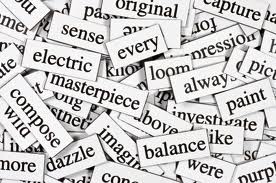 Written by Donna McClintock, COO with Children’s Choice Learning Centers, Inc.
Written by Donna McClintock, COO with Children’s Choice Learning Centers, Inc.
One of the things that families can do to ensure their children are inspired to become lifelong learners is to read to them every day from the beginning on a variety of levels. Research has proven that having exposure to a broad range of subjects also increases a child’s vocabulary. Focus on an area that is of interest to her, and then always try to broaden that interest. This is a great resource on how to broaden your child’s vocabulary. http://teacher.scholastic.com/products/readingline/pdfs/ProfessionalPaper.pdf
Children need to live in a vocabulary-rich environment, and children with broad vocabularies have typically been exposed to more words. It is estimated that children can learn up to 20 words a day, so use both new and familiar words with even very young children to describe their world. Try to use as many words as you can and be sure to explain each word to them.
There are few activities that are free, and reading is one of them. Check out books from the library and choose those that are above your child’s reading level. She will delight in hearing stories read to her that have very descriptive words in them. She might not fully understand every word, but she will exercise her imagination and she will love the time with you.
Learning new words and enjoying a rich vocabulary should be fun so make up stories and allow your child to play games with words. My son, who is now 34, thoroughly enjoyed delighting us when he was only three by using words that most three-year-olds didn’t know. He is still one of the smartest men I know. His dad and I read to him all the time, and he would go to sleep listening to readings on cassette tapes. We didn’t know this at the time, but research has proven that listening to recorded reading improves your vocabulary, especially if it is above your level and you strive to understand it.
Broaden your vocabulary with your child. Don’t always try to “dumb it down” because your child is young. Use big words intentionally and explain their meanings. Teach your child how some words are related such as how “angry” means “mad” and that “happy” and “elated” are similar.
Just remember that a child’s vocabulary matters greatly to his overall academic success. You will learn a lot along the way when you get busy talking and reading to him. One of my best teachers was my son, Zane. He inspired me … he still does.

You must be logged in to post a comment.